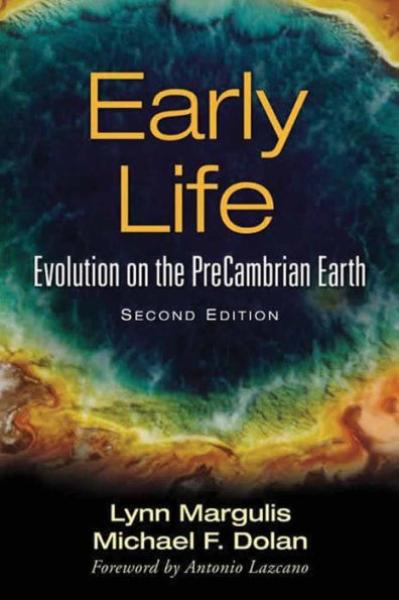Description
Early Life: Evolution on the PreCambrian Earth, Second Edition offers an informative and compelling analysis of microbial evolution, often overlooked as the opening chapter of life's history. With this long-awaited new edition, Lynn Margulis and Michael Dolan integrate new discoveries from the past two decades, such as the enormous contribution of molecular biology, especially the accumulation of protein and DNA sequence information upon which the Woese three-domain system is based. Yet the prokaryotic-eukaryotic distinction remains the largest evolutionary discontinuity in life on Earth. Are the well-formed filaments found so recently in the Warrawoona Series of northwestern Australia really evidence of the oldest life on the planet? Do the fossils found in the great Gunflint Iron Formation of Ontario tell that bacteria were instrumental in the accumulation of the most important iron reserves in the world? These questions are not solved here, but they are raised for students, scientists, and general readers interested in the most basic evolution and its consequences. No special scientific background is required of the reader, only a lively interest.
Early life attempts to tell the stories of primitive life. The text conveys some of the excitement in the current attempts to reconstruct the opening chapters of life on the planet Earth, long before the appearance of the simplest animal or plant.
Lynn Margulis is Distinguished University Professor in the Department of Geosciences at the University of Massachusetts Amherst. She is widely recognized for her theories on the symbiotic origin of eukaryotic cells, her development of the Five Kingdom classification scheme, and her role, with James Lovelock, in developing the Gaia Hypothesis. She is a member of the National Academy of Sciences and recent recipient of the National Medal of Science.
Michael Dolan is adjunct assistant professor in the Department of Geosciences at the University of Massachusetts Amherst. An expert on anaerobic protists of termites, he also teaches the class "Environmental Evolution" to advanced undergraduate and graduate students in biology, chemistry, and astronomy with Dr. Lynn Margulis.
Early life attempts to tell the stories of primitive life. The text conveys some of the excitement in the current attempts to reconstruct the opening chapters of life on the planet Earth, long before the appearance of the simplest animal or plant.
Lynn Margulis is Distinguished University Professor in the Department of Geosciences at the University of Massachusetts Amherst. She is widely recognized for her theories on the symbiotic origin of eukaryotic cells, her development of the Five Kingdom classification scheme, and her role, with James Lovelock, in developing the Gaia Hypothesis. She is a member of the National Academy of Sciences and recent recipient of the National Medal of Science.
Michael Dolan is adjunct assistant professor in the Department of Geosciences at the University of Massachusetts Amherst. An expert on anaerobic protists of termites, he also teaches the class "Environmental Evolution" to advanced undergraduate and graduate students in biology, chemistry, and astronomy with Dr. Lynn Margulis.
Last updated on
Product Details
- Jones & Bartlett Publ Brand
- Dec 30, 2001 Pub Date:
- 0763714631 ISBN-10:
- 9780763714635 ISBN-13:
- 168 Pages
- 9.06 in * 6.12 in * 0.39 in Dimensions:
- 1 lb Weight:




